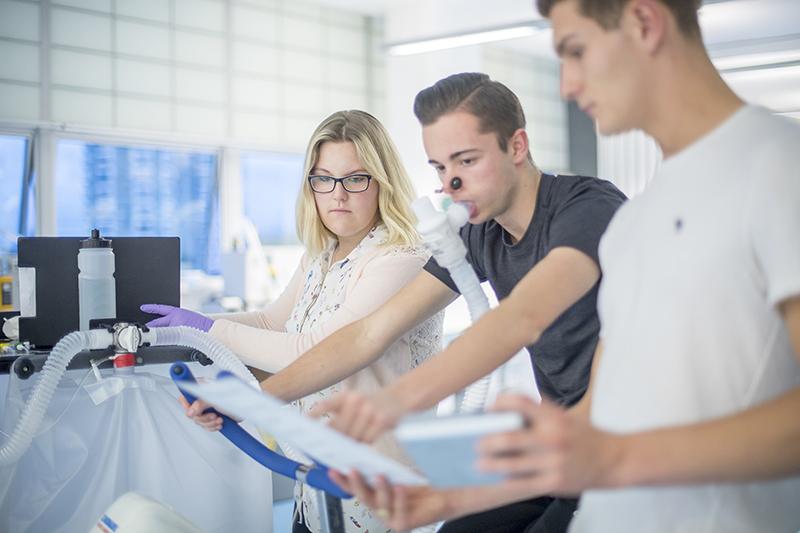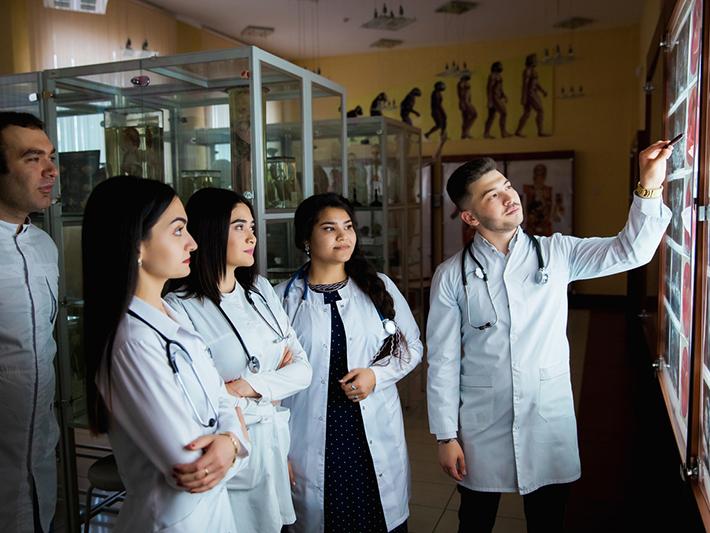Since the Covid pandemic, many sport, exercise and health science researchers work remotely when not testing. This creates an issue for those conducting higher-risk testing who require an additional person in the room in case of ill health or accidents and, in some cases, to comply with safeguarding procedures. At Loughborough University, the technical team tried to cover this work, but the demand soon grew to a level that was not sustainable alongside their other duties.
Students also want work experience opportunities to increase their employability or the strength of their applications for further study or jobs. Performance scientist Steve Ingham highlighted this need for applied experience in his 2022 Letter to the 15,000 because many students were finishing their degrees without the level of practical skills needed for applied roles due to constraints on lab time while studying. Additional lab or practical experience opportunities might also be insufficient due to insurance, ethical and contractual constraints.
- THE Awards 2024 spotlight: learn from the best in UK and Irish higher education
- Buddy system: creating community through writing
- How to develop a researcher mindset as a PhD student
The “research buddy” scheme is a voluntary opportunity for undergraduate and MSc students within the School of Sport, Exercise and Health Sciences (SSEHS). The scheme was set up by myself and my colleague Lynsey James, a teacher at Loughborough University, in cooperation with the university’s Coaching and Volunteering Academy (CVA). The aim of the scheme was to enhance student experience and upskill students while also providing a solution to the lack of personnel available for testing support.
Setting up the ‘research buddy’ scheme
Setting up the scheme required effective communication between myself and Lynsey, the PhD researchers, the senior leadership team (SLT) and the CVA at Loughborough who advertised the opportunity. As we were unsure of the demand from the PhD students, we estimated how many research buddies we would need to begin. We advertised the opportunity to undergraduate and MSc students within SSEHS and shortlisted 25 candidates. We then recruited PhD students on to the scheme who needed research buddies due to the nature of their testing (for example, higher-risk testing methods from a health and safety or safeguarding perspective). Before starting their roles, the research buddies completed lab inductions (online and in person) and were shown a venepuncture blood sample in case of any adverse reactions.
Issues encountered
As the students all had lectures, seminars and other commitments to work around, on certain times and days, no students were able to sign up. We had this issue especially on Tuesday mornings because this is a popular day for researchers to run main trials if they also have recovery visits 24, 48 and 72 hours post. (It is easier for participants to standardise diet and exercise on Monday than at the weekend.) We also had a few periods of the year where fewer research buddies were signing up (such as during university holidays and exam periods when research testing was still taking place).
After a couple of months, we had gone from two to 10 researchers signed up to the scheme, and the 25 research buddies weren’t sufficient to cover the hours the researchers were requesting alongside their academic studies. Some research buddies also lost interest due to the observational nature of the scheme – once they had watched the same thing a few times, they found it a bit monotonous.
Scheme development
When assessing the success of the scheme, feedback from both the researchers and research buddies at the six- and 12-month timepoints allowed us to adapt the scheme so that it was beneficial to all involved. A few of the changes we made following feedback at six months were the recruitment of another 15 research buddies, a weekly email to remind students to sign up for testing slots and making the participant information sheets for the studies available to the research buddies to give context before they attended sessions.
After the scheme had been up and running for a year, we received approval from the SLT to add an additional level. This was due to the success of the scheme and requests from students wanting to gain more hands-on experience because initially they could only observe testing/make notes and communicate with the researcher/participant. Once students had completed 20 hours of volunteering, they could move to level two and receive training on commonly used testing techniques, which they could then do within the testing sessions under the supervision of the researcher.
Impact and takeaways
The scheme has been a success so far and it has helped students develop their hands-on and communication skills, while also giving students experience of what goes into running a research study. This is a great starting point going into third-year and MSc research projects. All students involved said that they enjoyed the scheme and those continuing studies for the next academic year were keen to get more hands-on in the testing sessions once they have progressed to level two. This type of scheme is a valuable addition and something that could be implemented at most institutions and adapted to suit different departments and disciplines.
Sally Carter is a technical officer in sport health and exercise sciences at Loughborough University. She was shortlisted in the Outstanding Technician of the Year category in the 2024 THE Awards. A full list of nominees can be found here.
If you would like advice and insight from academics and university staff delivered directly to your inbox each week, sign up for the Campus newsletter.




comment